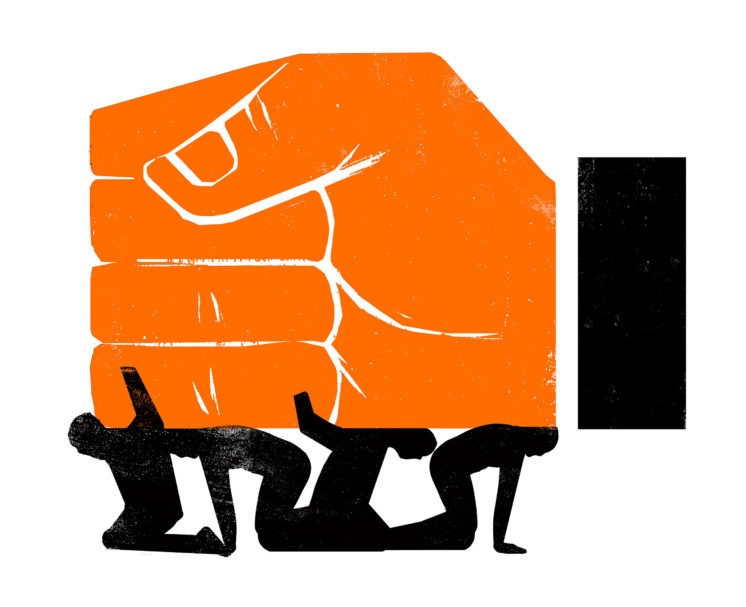The president’s fiscal 2020 budget proposal is yet another attack on poor families. The administration has proposed slashing funding for critical programs that help low- and moderate-income individuals access healthy and nutritious food, receive critical health care services, and live in safe and affordable homes.
Specifically, the president proposed to cut $230 billion from the Supplemental Nutrition Assistance Program (SNAP, or food stamps); $250 billion from Medicaid; and $6.8 billion from the Department of Housing and Urban Development’s budget.Although Congress is unlikely to approve the proposal, the budget draws a troubling picture of the administration’s policy priorities and their effect on families struggling to make ends meet.
The proposal’s impact would be staggering. SNAP is the nation’s largest anti-hunger program and helps over 40 million people combat food insecurity. Under the proposal, more than 750,000 food stamp recipients would stand to lose food stamps. The budget would drastically reduce child nutrition programs and impose requirements that would harm workers of all ages.
Medicaid is the single largest source of health coverage in the country and provides 72 million individuals—most of whom are children, seniors, and persons with disabilities—access to the health services they need. This program would be among those adversely affected by budget cuts, which threaten to widen the gap between critical health services needed and those actually provided.
Cuts in programs supporting affordable housing are also in the administration’s sights. HUD implements programs that fund public housing repairs, federal housing subsidies, Section 8 vouchers that help families pay rent, and community development block grants that are key to disaster recovery and neighborhood redevelopment. HUD’s Section 8 and public housing programs alone provide two million families access to safe and affordable apartments. Those programs would be subjected to a decrease of 18 percent below what Congress provided for 2019, resulting in the drastic reduction in the number of programs designed to create sorely needed affordable housing in both urban and rural areas. Because of the relationship between housing and access to vital services such as education, employment, health care, and transportation, a reduction in the availability of affordable housing would have a negative ripple effect on access to opportunities more broadly—both now and in the future.
In addition, the president’s budget proposal pushed for legislation to add (or strengthen) work requirements for the recipients of these means-tested assistance programs, signaling a policy priority to “make welfare work,” and perpetuating the myth that public benefits recipients choose not to work and live comfortably on government assistance.
Most public benefits recipients do work. And those who do not cannot work because of federally recognized exemptions, such as caretaking responsibilities, attending school, or having a disability. Furthermore, work requirement rules in assistance programs actually hurt rather than help struggling families.
Research shows that the work rules currently in effect in SNAP and Temporary Assistance for Needy Families (TANF) do not lift people out of poverty. Instead, these rules have inflicted serious hardship by causing many families to lose assistance in times of need and throwing them into deeper poverty.
Strengthening work requirements in SNAP would hurt beneficiaries who already work. Strict work requirements in Medicaid would take away coverage that enables individuals to manage their health so that they are well enough to work. And implementing work requirements in federal housing assistance programs would inevitably force individuals in crisis into unstable housing situations, crowded shelters, or homelessness—all of which make it more difficult to find and keep a job.
Many low-income people work low-wage jobs in industries where sudden job loss and fluctuating hours are common. Many work multiple jobs on a part-time basis and are therefore not eligible for employer-provided benefits. SNAP, Medicaid, and federal housing programs enable these individuals to meet their basic needs for food, medicine, and shelter. On the basis of failure to meet draconian rules, work requirements will take away benefits that can help families improve their economic prospects.
The impact of the proposed budget is as short-sighted as it is cruel. Each of these programs serves the dual function of assuring that the immediate and most basic needs of all are met and that no man, woman, or child is subjected to crippling hunger or the absence of either medical care or the possibility of living in safe, affordable housing. Beyond meeting those immediate needs, the programs are designed to make it possible for low-income people to break the cycle of poverty by receiving badly needed assistance at crucial times.
That safety net of programs creates the possibility for everyone to better their circumstances, to reach their potential, and to become fully participating members of society. That safety net is in serious threat of being destroyed, and if it goes, it will be a detriment to society.
Rather than addressing the needs of low-income families, Trump’s proposed budget exacerbates the challenges they face. Congress is unlikely to approve the president’s cruel budget, but simply rejecting it is not enough. The budget is a symptom of a larger problem, one that cuts funding to assist the most needy and vulnerable while prioritizing military spending and the construction of a wall that serves no purpose beyond creating division and hate. The administration must end its demonization of the poor and its attack on programs that assist them and recalibrate its priorities to ensure that the pursuit of equality of opportunity is furthered.
Dennis Parker is the executive director of the National Center for Law and Economic Justice, which advances the cause of economic justice for low-income families, individuals, and communities across the country.







0 Comments